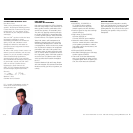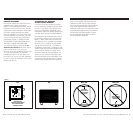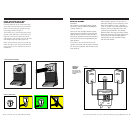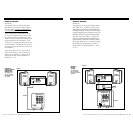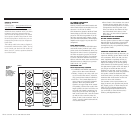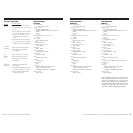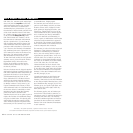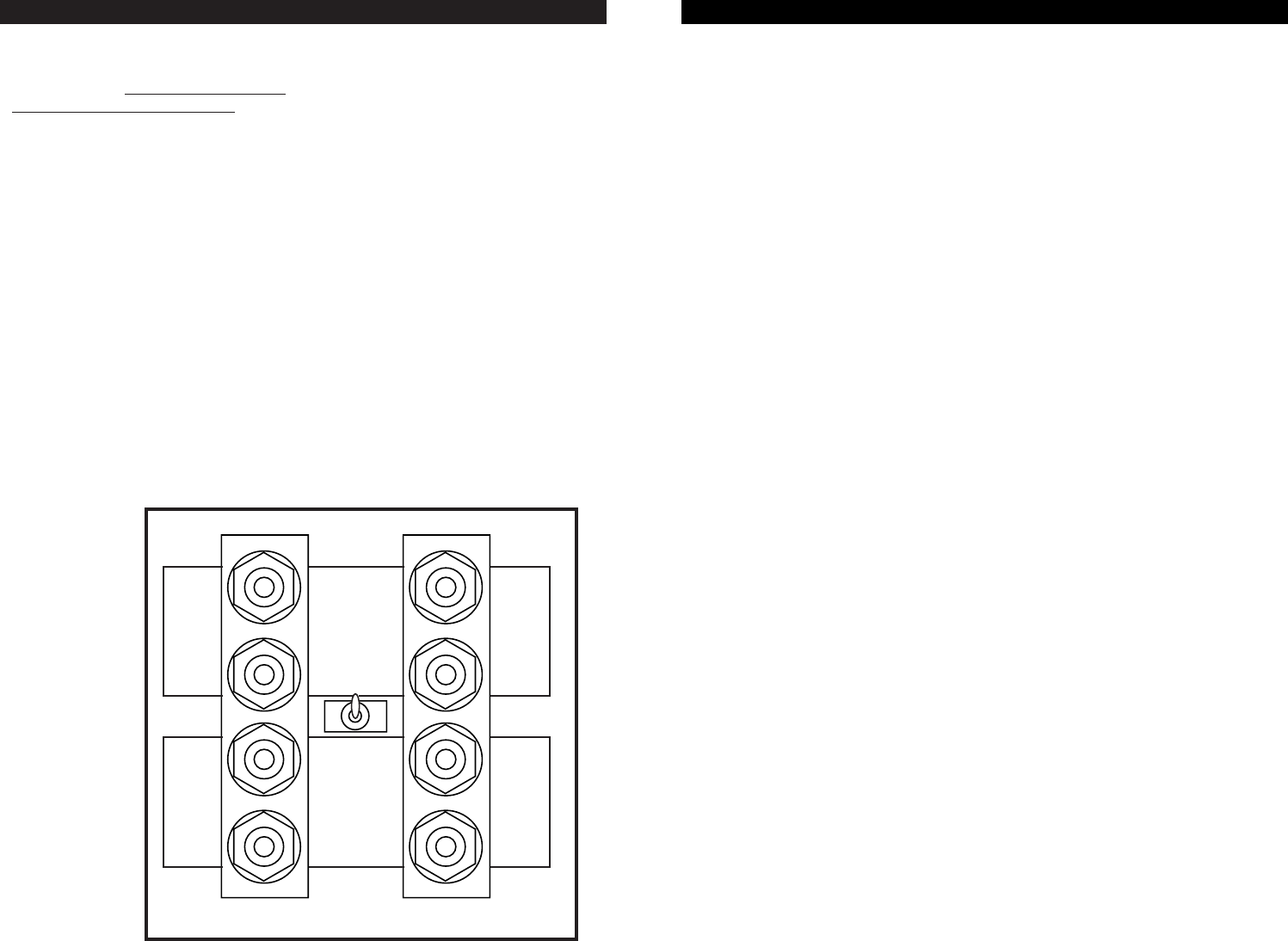
10
For more information visit our web site at http://www.polkaudio.com
9
For customer service call 800-377-7655
AC POWER CONNECTION
AND AUTO ON/OFF
PSW250, PSW350 and PSW450 models sold
within North America are designed to be con-
nected to 110-120 volt AC outlets.
Units destined for countries outside of North
America that use 220-240 volts are factory
preset for 220-240 volt operation. If you do
not know your local supply voltage, consult
your Polk Audio dealer before connecting the
amplifier to the supply or to your other hi-fi
components.
AUTO MUTE CIRCUIT
The PSW250, PSW350 and PSW450 feature
auto on/off circuitry, marked “auto” on the
power switch, that automatically turns your
subwoofer on when it senses a program sig-
nal. When no signal is present, the circuit
turns the subwoofer off after a few minutes.
If you are concerned about the brief delay
between when the music starts and when the
subwoofer turns on, simply leave your sub-
woofer in the “on” position.
ADJUSTING THE
PSW250/PSW350/PSW450
• For RM6600 and RM6200 adjustments
please refer to their owners manuals.
• Volume—Adjust by ear using a wide vari-
ety of CDs and video sources. Adjust for
deep, powerful bass without “boominess.”
• Low Pass—This control adjusts the fre-
quency range over which the subwoofer
operates. When using smaller main
speakers, the upper range of the control
will probably yield the best results. With
larger speakers, the lower end of the con-
trol range will probably sound best, but
always let your ear be the final judge. If
male vocals sound “thin,” turn this control
up until the voice sounds rich but not
boomy. If male vocals sound too “thick” or
“chesty,” turn this control down until the
voice sounds natural.
• Phase Switch—Have someone else switch
between the two settings while you sit in
your favorite listening position. Use music
with good bass and a deep male vocal.
When you hear the best balance of deep
bass and natural lower octaves of the
male voice, you have achieved optimum
phase tuning.
MAINTAINING THE APPEARANCE
OF PSW SERIES SPEAKERS
Your new speaker cabinet is made of a rugged
material that can be dusted or cleaned with
a moist cloth. Avoid harsh detergents and
cleaning fluids, they can permanently damage
your speakers’ finish.
TECHNICAL ASSISTANCE OR SERVICE
If, after following the hook-up directions, you
experience difficulty, please double check all
wire connections. Make sure that your elec-
tronic equipment is operating correctly by
hooking up another speaker to the speaker
output. For example, if you are not getting
sound from the left channel speaker, connect
the right channel speaker to the left output. If
you still get no sound from that side, the
problem is in your amp, receiver or source
electronics. Should you isolate the problem to
the speaker, contact the authorized Polk
Audio dealer where you made your purchase.
Authorized Polk Audio dealers are the best
source for advice and assistance.
Our customer service representatives are
happy to answer your questions and provide
fast, friendly service. In North America call
(800) 377-7655, Monday through Friday,
9:00am through 6:00pm Eastern time. Or
you can E-Mail us at our Internet service
address: polkcs@polkaudio.com.
This method is
recommended for use
with the PSW450.
See hookup diagram
for “option #1”:
Figure 3, page 6.
FIGURE 6
OPTION #4
PSW450
ONLY
+
+
–
–
+
+
–
–
80Hz
FULL
RANGE
SPKR
IN
SPKR
OUT
HOOK-UP OPTIONS
OPTION #4
(PSW450 Only) – Not recommended for use
with RM6200 and RM6600 systems. The
PSW450 offers a “switchable high pass filter”
at 80Hz for those situations where you choose
to limit the lower bass content directed to
your front left and right speakers. The benefit
can be greater dynamic range from the front
left and right speakers because they are not
being asked to produce any bass frequencies
below 80Hz.
This hookup would be the same as Option #1,
but with the switch turned to “80Hz.” See fig-
ure 6. Consult your dealer or Polk Audio cus-
tomer service if you have questions about the
use of this feature.
LEFT RIGHT




